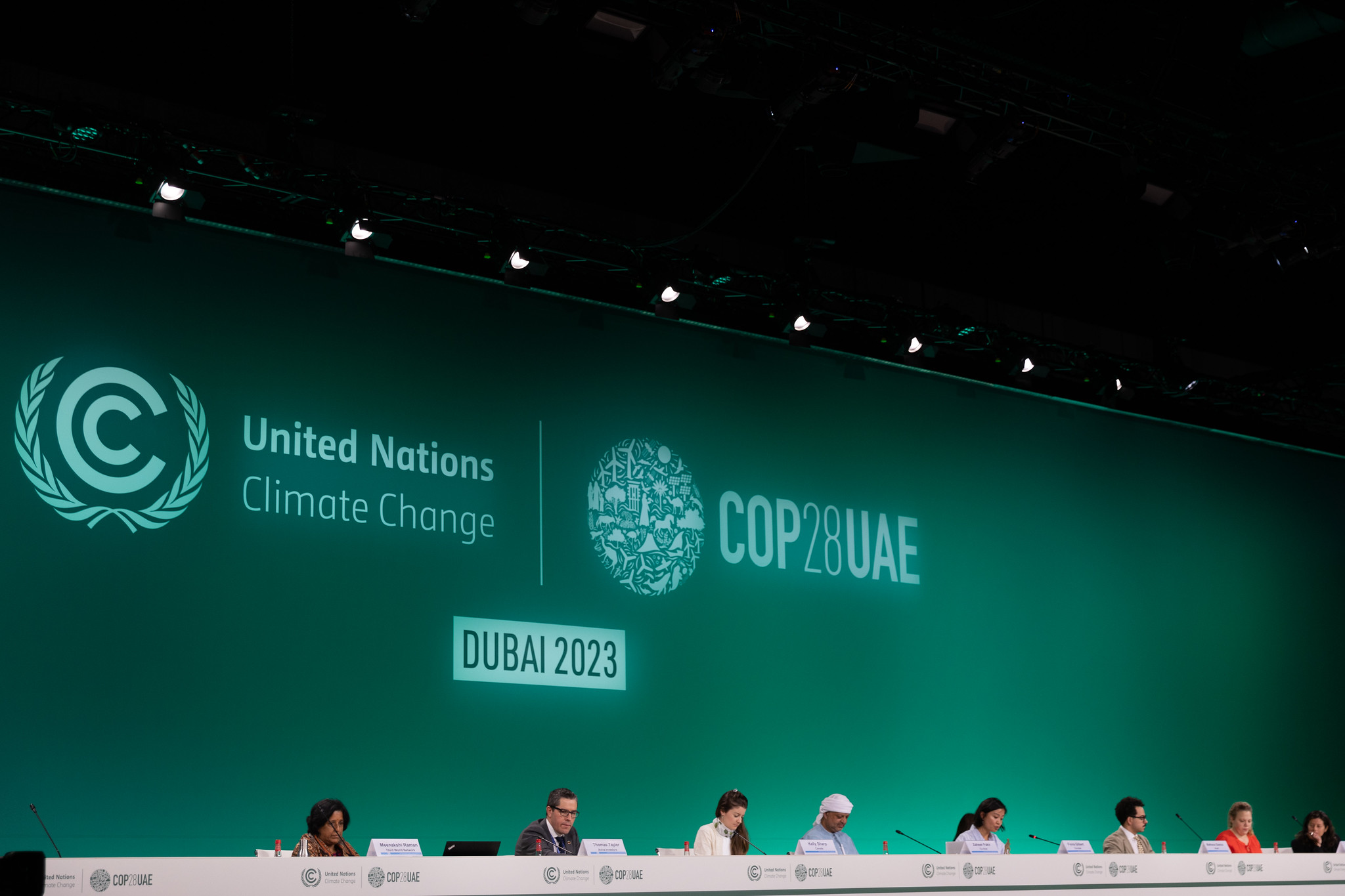By: Iris Olivera
Derecho, Ambiente y Recursos Naturales (DAR)
This week, the UN climate summit, the 28th Conference of the Parties on climate change (COP), began in Dubai, bringing together 198 countries to discuss progress and joint actions to combat climate change and adapt to its effects.
Among the central topics in this space are the countries’ assessment of climate action (Global Stocktake in English); progress on the creation of a loss and damage fund – approved at COP 27 – in which developed countries would have to contribute money to help developing countries cope with irrevocable losses caused by climate change, which aims to accelerate the transition towards abandoning fossil fuels; the transformation of climate financing agreements, among others.
And Peru? At the international level, our country committed to reducing 40% of its greenhouse gas emissions by 2030. This goal would require addressing the causes of these emissions, originating mainly in our country due to the change in land use, linked to deforestation (in 2020 alone, Peru lost more than 200 thousand hectares of forest, the highest rate in the last 20 years). In addition, it is in the process of achieving the goals of the Convention on Biological Diversity.
Are there public policies that, from their design, take these commitments into account? Do our authorities prioritize actions to combat climate change? If we take stock of the policies prioritized by most sectors and the Legislature, we can see that compliance with climate goals becomes something accessory and merely decorative, only visible when there are events like the COP.
This political incoherence is seen in the Legislature on multiple fronts: with bills that seek to modify the Forest Law to promote deforestation; that promote illegal mining and the extraction of fossil fuels on indigenous territories and protected natural areas, without prioritizing the management and protection of biodiversity; that promote roads in the Amazon that do not have technical studies or prior consultation, and that far from closing gaps, they would open or deepen others due to the risks of territorial security due to invasion or increase in illegal activities, with regrettable consequences for human rights defenders. This week, for example, the murder of the Kichwa indigenous leader Quinto Inuma, a human rights defender who had denounced deforestation in his community (Santa Rosillo de Yanayacu) by illegal loggers, was recorded.
This political incoherence is also supported by the Executive, which does not prioritize the effective application of protection mechanisms, such as the titling of native communities; and supports congressional bills linked to roads in the Amazon without prior consultation or technical studies. This Executive promotes an apparent investment but does not prioritize supervision, environmental and forestry inspection: although the proposal for the largest public budget in history for 2024 has been presented, this would be reduced for key sectors such as SERFOR and OEFA, in comparison with 2023.
These inconsistencies in public policies brings with them impacts on the climate and the rights of the populations. Therefore, the climate agenda in the Amazon requires addressing points such as the inclusion of a mitigation measure to reduce deforestation due to the expansion of infrastructure in the Amazon among the NDC goals (climate goals); the articulation of these goals with those of the Convention on Biological Diversity, for the benefit of the food systems of indigenous peoples; the protection of Peru’s protected natural areas, which store 23% of the carbon stock of the Amazon forest and are vital in the fight against climate change; implement safeguards that protect indigenous rights in carbon markets; a transition towards clean, fair and community energy, with energy policies with high socio-environmental standards; and climate financing with a rights-based approach.


